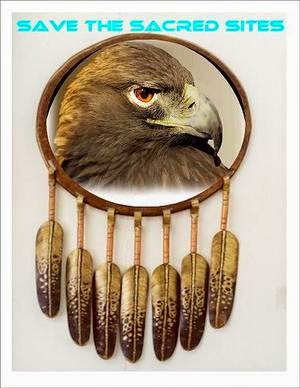Aboriginal hunters across the North are pushing back against attempts to conserve wildlife, launching court actions and legislative measures to stop the three territories from regulating the harvest of caribou and polar bears.
"Aboriginal people are very aware of their rights," said Bill Erasmus of the Dene Nation in Yellowknife, who faces legal action for hunting in defiance of a ban on taking caribou from the declining Bathurst herd in the central Arctic tundra.
"We may let other things slip, but when you go to the core of who we are, we determine there is a limit."
Northern aboriginals depend heavily on game for food and wildlife issues are among the most politically sensitive in the Arctic. Aboriginal control over animals on their own lands is supposed to be guaranteed by a series of land claims and co-management agreements.
But all three territorial governments, on the advice of biologists, are trying to restrict hunting.
Last fall, Yukon ruled that hunting of the Porcupine caribou herd - thought to have declined from 178,000 to 100,000 animals over the last 20 years - would be restricted to bulls.
Shortly after, the Northwest Territories ended all hunting for the Bathurst herd, which has shrunk by three-quarters in the last three years.
And Nunavut Environment Minister Daniel Shewchuk is still trying to set new quotas for polar bears in Baffin Bay, which most biologists consider over-hunted and in decline.
Both the Inuvialuit Game Council and the Gwich'In Tribal Council are taking Yukon to court, asking a judge to declare the territory has broken their land claims by not consulting them adequately. They want a judge to order the hunting restrictions removed.
On Monday, the N.W.T. legislature will consider a motion that calls on the government to rescind its controls on the Bathurst herd.
"It's about aboriginal rights for their means of survival and food," said Norman Yakelaya, the legislative member from the area affected by the hunting ban who tabled the motion.
"We jumped the gun on this. We should have waited to have aboriginal people deal with it."
Erasmus and several other Dene leaders are expected to appear soon before a justice of the peace to demand the return of confiscated caribou meat seized after an illegal hunt.
Shewchuk has been trying to for months to bridge the gap between polar bear hunters near Baffin Bay, who insist they're seeing more bears all the time, and the scientists who claim the current quota is unsustainable. He's already rejected one recommendation from the aboriginal co-management board.
The argument was inflamed recently when the federal government ruled it would no longer permit export of hides taken from that population.
Government spokesmen say that aboriginal groups aren't moving fast enough to protect wildlife.
N.W.T. Environment Minister Michael Miltenberger said his government only acted when it became clear the aboriginal board that oversees the Bathurst herd wouldn't make its own recommendations until this year's hunting season was over.
"We had to make a decision," Miltenberger said. "All the biologists tell us the herd cannot survive another year with an unrestricted hunt."
He said the government has offered to fly subsistence hunters from affected communities to areas where they can still hunt.
Craig Stewart of the World Wildlife Fund - which supports both wildlife conservation and subsistence hunting - says the problems arise from different ways of looking at the natural world.
"What seems to be behind it is a completely different view of what's normal," he said.
While aboriginals tend to view animal population changes as part of a cycle, scientists have grown increasingly alarmed at the size and speed of the declines.
Still, science lacks long-term historical data for many animals including caribou and polar bears, said Stewart.
"Governments need to make the investments in science to a broad enough scale so we can close the gap," he said.
Until then, said Erasmus, aboriginal groups will keep fighting what they see as attempts to wrest away control of the animals they've lived with for generations.
"We can't believe that someone is trying to stop us from hunting without our consent to that."
Subscribe to:
Post Comments (Atom)






No comments:
Post a Comment
Note: Only a member of this blog may post a comment.